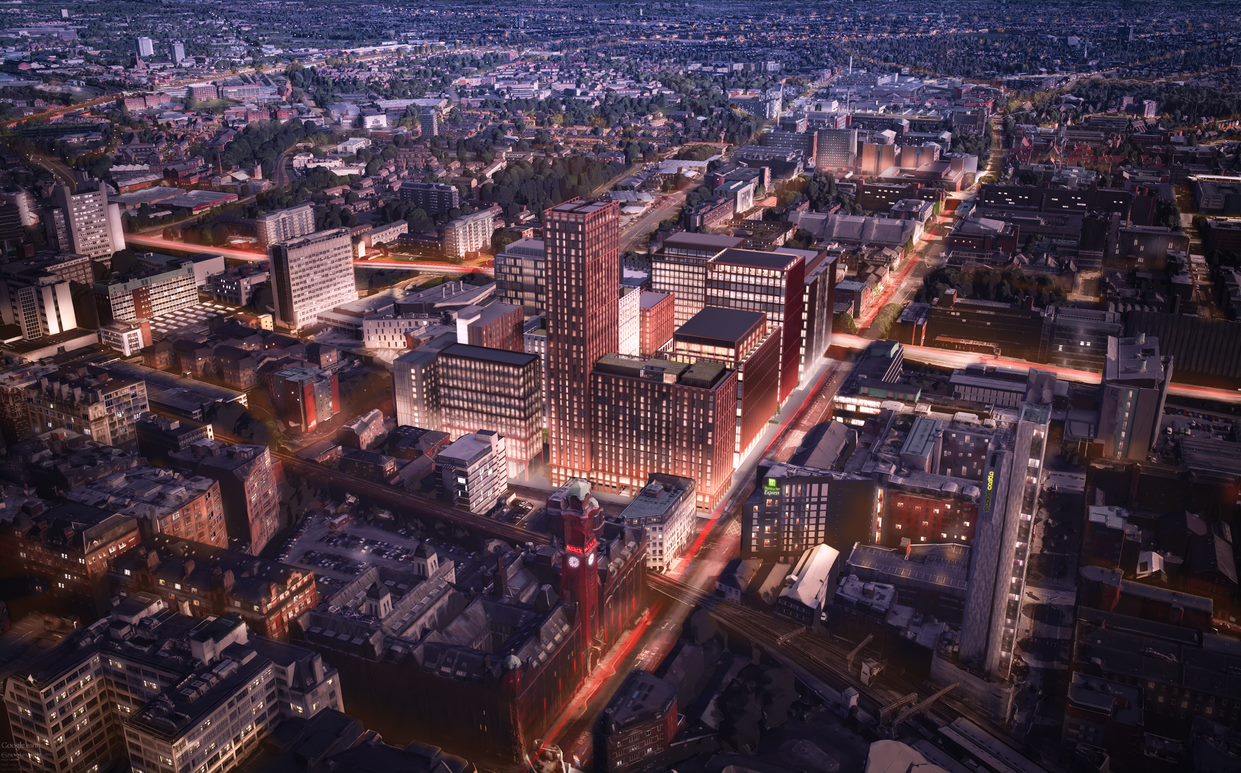Cities will remain vital hubs for collaboration

Cities will remain vital hubs for collaboration, buy they need the finance to support them
The recent rhetoric from the Prime Minister surrounding infrastructure investment must be encouraging for the region – remembering the Conservative gains across the North West during the last election, Boris should be feeling under pressure to divert a proper amount of any support to the locality.
There is no doubt that the infrastructure spend is long overdue, however that only brings us to the end of an episode in this series. To finish the series, there needs to be jobs, and to create jobs there must be the real estate built to accommodate those jobs.
We don’t yet know what that real estate requirement will be in the medium term, with the increase in home-working over the last three months set against the higher space demands required to enable appropriate distancing in the office. There is no doubt in my mind however this will become sufficiently clear in the next three months, with the accelerated attempts to get back to the new normal a priority for all business management teams.
I am also confident that the human desire to work and socialise together will conquer any negative perceptions about co-working. We create more value when we can talk about ideas face-to-face, and whilst there is definitely a new understanding of how we can effectively home-work, there is also a renewed and reinvigorated desire to be in workplaces, sharing our thoughts and ideas, and learning from each other. I can still see city centres being the primary hubs for business, potentially with an increased demand for workspace in smaller satellite towns. The other major acceleration is the way we consumers are consuming. The need for clever distribution systems and the associated real estate has never been more obvious.
So, what does this mean for the funds CBRE manages that are designed to support growth of regional economies through provision of real estate debt for development? These funds are expected to be active when other lenders aren’t. Developers are generally facing a shortage of debt across all sectors, other than those schemes that are very prime with strong pre-let activity. This means that even those willing to invest their equity are not always able to do so.
The Evergreen Fund was set up to support the North West in its recovery post-GFC, which it did very effectively in the face of a similar funding market. Early schemes requiring help tended to be very prime and even included elements of pre-let, such as 1 Spinningfields as well as a hotel and office scheme in Media City, and infrastructure requirements for large strategic schemes such as Logistics North.
More recently, as the funding market has recovered slightly, such funds have been vital in supporting economically important but more challenging projects and Evergreen has become a solution for developers in the conception of new schemes rather than back-solving how to fund old schemes. Funds such as Evergreen have become a source of development finance in the regions, motivated by outcomes other than financial return.
By building on the market awareness of these Funds we can continue to support the development of such schemes as well as the shorter-term provision of jobs in the construction industry, which will be just as important to recovery as any workspace provision.
Our funds must be bold in supporting their regions; making lending decisions that will enable the development of the occupational infrastructure that would otherwise not be funded. Furthermore, they ensure that a lack of good-quality, modern and adaptable workspace is not a reason for a slower recovery than could otherwise be supported.

Will Church
Senior Director
Investment Advisory, CBRE Capital Advisors, July 2020
